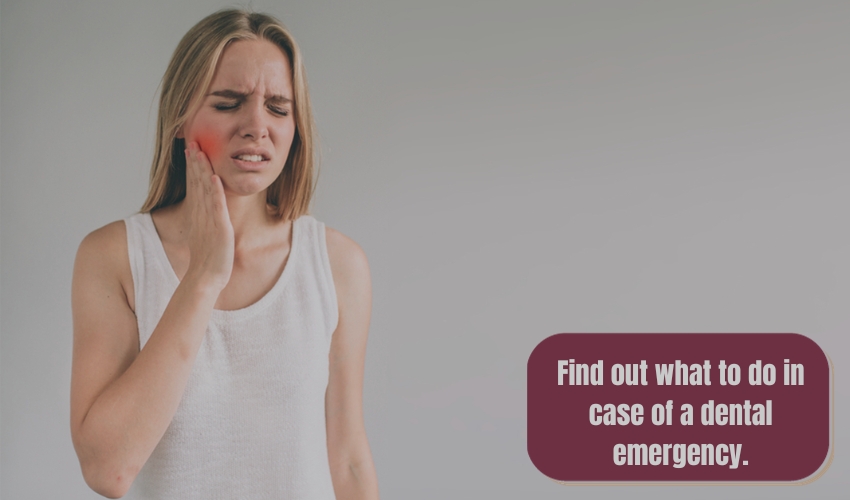
What To Do When You Have A Dental Emergency?
Dental emergencies are no exception; they can occur at any time. Whether it’s a sudden toothache, a knocked-out tooth, or a dental injury, knowing how to handle the situation can make a significant difference in preserving your oral health. In this blog, we’ll guide you through what to do when you have a dental emergency and the importance of seeking help from an emergency dentist.
Stay Calm And Assess The Situation
Remaining composed is the first step in handling a dental emergency. Panic can exacerbate the situation, so take a deep breath and assess the severity of the problem. Common dental emergencies include:
- Toothaches: Rinse your mouth with warm water, floss to remove any debris, and take over-the-counter pain relievers if needed. Aspirin shouldn’t be applied straight to the tooth.
- Knocked-Out Tooth: If a tooth is knocked out, handle it carefully by the crown (top part), not the root. If at all feasible, attempt to put it back in the socket after giving it a gentle water rinse. If not, keep it moist in milk or saliva and get to an emergency dentist as soon as you can.
- Dental Emergency – Chipped or Broken Tooth: Preserve any broken fragments, rinse your mouth gently with warm water, and apply a cold compress to minimize swelling. Swiftly seek professional dental care.
- Lost Filling or Crown: You can use dental cement, available at most drugstores, to temporarily reattach a lost filling or crown. However, see your dentist as soon as possible to avoid further damage.
- Injury to Soft Tissues: If you’ve bitten your tongue, lips, or cheeks, clean the area gently with warm water and apply pressure to control bleeding.
Contact an Emergency Dentist
In any dental emergency, it’s crucial to contact an emergency dentist immediately. These professionals are equipped to handle urgent dental situations and can provide timely care to address your issue. When you call, provide them with as much information as possible about your condition to help them prepare for your arrival.Preventing Dental Emergencies
While knowing how to respond to a dental emergency is essential, preventing emergencies in the first place is even better. Observe the following advice:
- Maintain Good Oral Hygiene: Brush and floss regularly to reduce the risk of tooth decay and gum disease.
- Wear Protective Gear: When engaging in contact sports, don’t forget to employ a mouth guard to shield your teeth and gums from potential dental emergencies.
- Avoid Chewing on Hard Objects: Don’t use your teeth as tools to open packages or bite on hard objects.
- Regular Dental Check-Ups: Schedule regular dental check-ups to catch and address dental issues before they become emergencies.
- Stay Prepared: Keep a dental first-aid kit handy with items like dental cement, gauze, and an emergency dentist’s contact information.
Follow-Up Care and Recovery
After seeking treatment for a dental emergency, it’s crucial to diligently adhere to the post-care instructions provided. Doing so is vital to ensure a smooth recovery and reduce the chances of complications. Following are a few general pointers for after-treatment care:
- Take Prescribed Medications: If your dentist prescribes any medications, such as antibiotics or pain relievers, be sure to take them as directed.
- Maintain Good Oral Hygiene: Continue to brush and floss your teeth gently, being cautious around the affected area to avoid further injury or irritation.
- Eat Soft Foods: Stick to a soft-food diet for a few days after treatment to avoid putting excessive pressure on the treated area.
- Avoid Certain Habits: If you have a habit of biting your nails or grinding your teeth, make an effort to stop as these habits can worsen dental issues.
- Follow-Up Appointments: Attend any follow-up appointments scheduled by your dentist to monitor your progress and ensure that your dental emergency has been fully resolved.
Dental emergency can be stressful, but knowing how to respond and seeking prompt care from an emergency dentist in McKinney can make all the difference in preserving your oral health. Remember to stay calm, assess the situation, and contact a dental professional for assistance. With the right actions and preventive measures, you can protect your smile for years to come.
